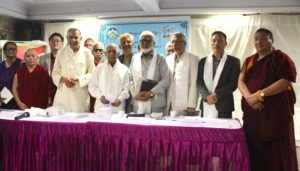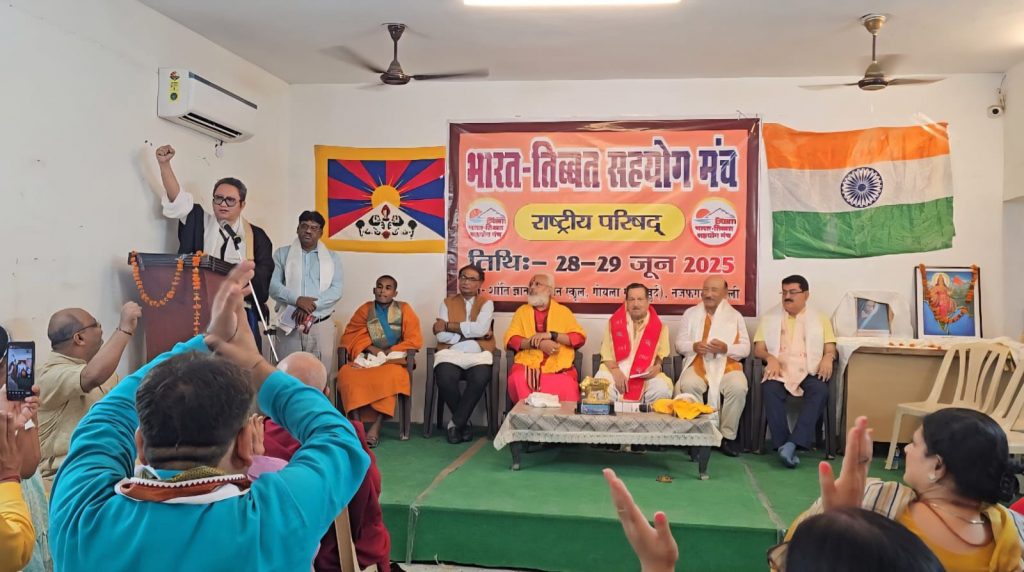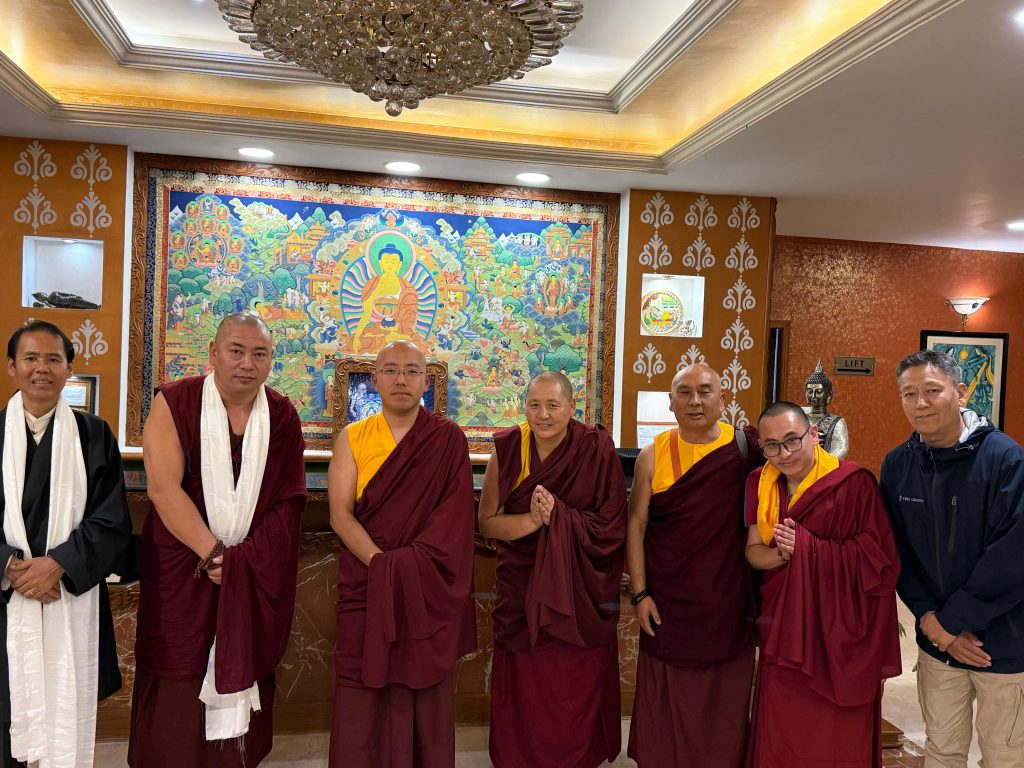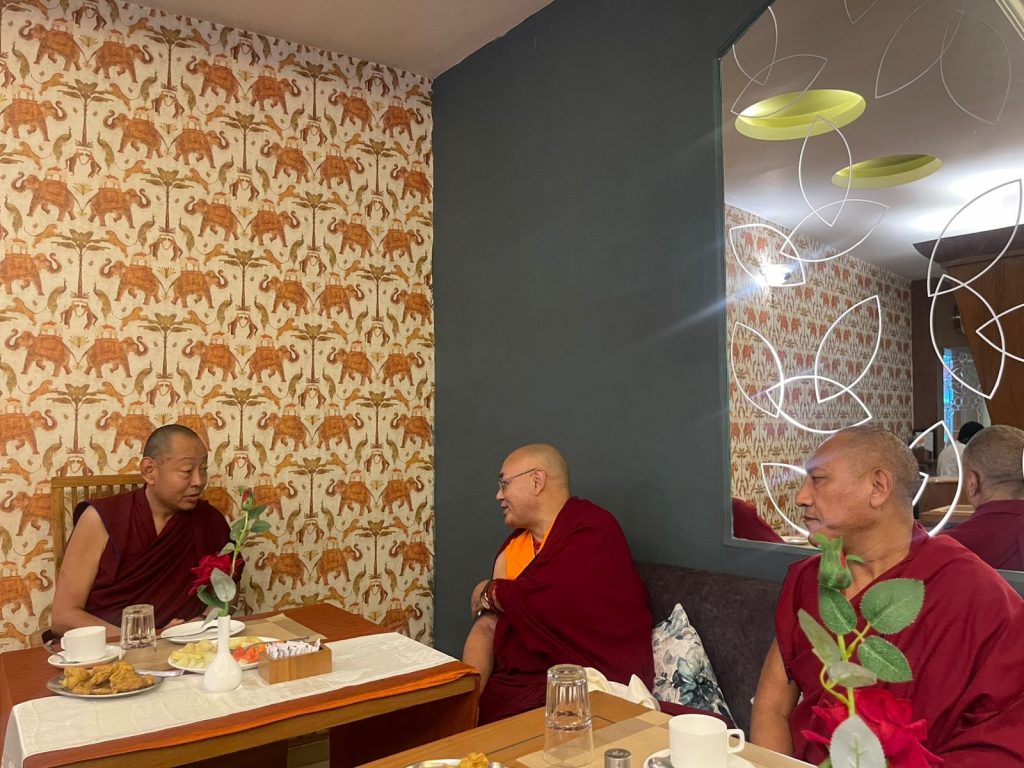Lucknow : Tibetan Parliament-in-Exile in collaboration with Gandhi Bhavan hosted a panel discussion entitled ‘How important is Tibet Issue to India’ at Gandhi Bhavan auditorium hall, Lucknow (UP) on 27th February, 2018.
The discussion started with an introductory speech by the Deputy Speaker of the Tibetan Parliament-in-Exile, Acharya Yeshi Phuntsok. Thereafter, Shri. Dauji Gupta, former Mayor of Lucknow and MLC, chaired the discussion. The panelists for the discussion included Colonel. Pradeep Kumar Gautam (Retd), Research Fellow at Institute for Defense Studies and Analyses (IDSA), Mr. Vinod Shankar Chaubey I.A.S (Retd), Dr. Anand Kumar, Research Fellow at The Indian Institute of advanced Study, Shimla, former Professor at Jawaharlal Nehru University (JNU), Mr. Tempa Gyaltsen Zamlha, Research Fellow, Tibet Policy Institute, Central Tibetan Administration.
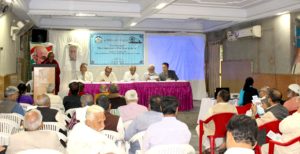
While speaking on ‘Impact of Indian Security on Tibet’ Col. Pradeep Gautam emphasized his speech on four security related clusters namely, Historical, Cultural, Civilization ; Ecological; Moral (Dharma) ; and Geo-political (Artha). He further elaborated the factors concerning Geo-Political and national interest of India.
Dr. Anand Kumar spoke on Tibet and it’s international relation, especially with India on the topic, ‘Impact of Indian Foreign Policy on Tibet’. He added that the government of India should be more active in supporting Tibetan struggle movement and that the people of India can very much relate in term of changing India’s foreign policy on Tibet. He also added that Tibet issue is something that is lot more to do with India specifically.
Mr. Tempa Gyaltsen Zamlha highlighted the environmental issues related to Tibet and its impact, specifically on ‘Why Tibet matters to the Indian sub-continental’. He further elaborated on the same with mainly 4 points justifications on why Tibet is important for environmental concern i.e., Tibet being roof of the world and highest plus largest plateau; Tibet being third pole of the world and how fast the Tibet’s glacier is being retreated and its implication on India; Tibet, being the rain maker, that been affecting the global climate due to rise in temperature; Tibet, being the water tower of Asia, as main source of six major rivers in Asia.
Mr. Vinod Shankar Chaubey elucidated on ‘Importance of Tibet’s culture’ by citing examples of influences of Tibetan culture in and around India. He mentioned that he has been intimate with Tibetan culture because of his job, which designate around Tibetan community, especially in Dehradun. And he offered his deepest empathy over the self-immolations in Tibet against the Chinese rule where freedoms of Tibetan minority are being denied and stated India can help Tibetan to revive its culture and freedom which are absent in Tibet.
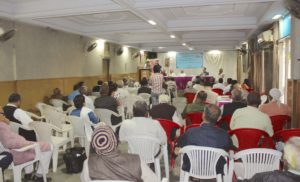
Before the Question and Answer session, the Chairman of the panel discussion gave his remarks, in which he recollected important points from each panelists about Tibet and its impact on India. He appreciated the non-violence struggle of Tibetan movement spear-headed by His Holiness the 14th Dalai Lama. He also thanked the Tibetan Parliament-in-Exile for choosing Lucknow as the venue for the panel discussion this year.
Shri. Lal Bhadur Rai, Secretary of Gandhi Bhavan, Lucknow, along with Mr. Surender Kumar from organizing team concluded the discussion with their vote of thanks to all the participants and the members of the organizing team. Conveners of Indo Tibet Core Group, members of ITFS, UP Chitrakut, Mr. Surenderer Kumar and Mr. Sunder Lal Suman had been very cooperative and helpful in the preparation of panel discussion.
The Deputy Speaker of Tibetan Parliament thanked everyone for showing concern over Tibet’s issue by joining the discussion. He then presented Tibetan traditional scarf and souvenirs for the Chair-men and panelists on behalf of Tibetan Parliament-in-Exile.
As a part of organizing team, two members of Standing Committee of Tibetan Parliament-in-exile, Ven. Atuk Tsetan and Mr. Gyarik Thar were also present for the said occasion.
Around 80 to 90 people from different walks of life had attended the discussion, which included advocates, college students, journalists, Gandhian-followers, intellectuals, Asst. Professors, members of political parties and etc. Tibetan Parliament-in-Exile’s pamphlets and booklets on self immolations along with other publications related to Tibet by India Tibet Coordination office (ITCO), Delhi were also distributed among the attendants.
